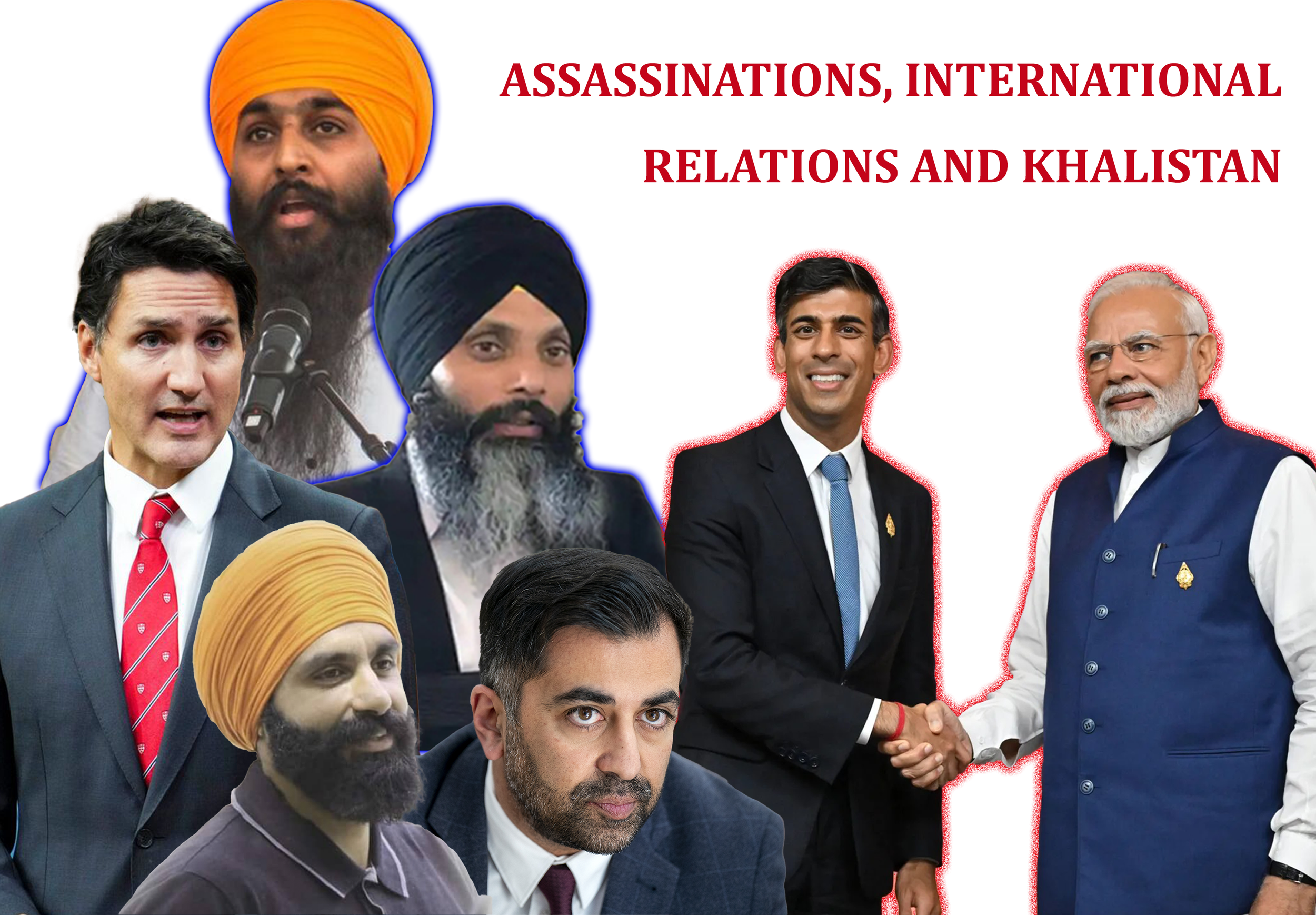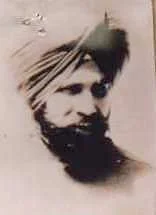Let Us Be Honest With Our People
/I am against most avenues of dissent commonly taken by our community such as petitions and demonstrations. It is not only because I cannot logically see how they could, or have ever resulted in real change, but because usually the initiative is fundamentally flawed. As we approached 30 years to the battle of Amritsar in June 1984, there had been calls from various groups and individuals within the Sikh community: calling on the international community for an inquiry into the Indian Army attack, to “get justice”. However, when one asks who this international community is (in terms of its organisation); or which mechanism can hold India accountable; or even for an example of where such a campaign has resulted in justice - the voices start to go quiet.
What are the Mechanisms?
India isn’t a member of the European Union, so the obvious “International” avenue must be the United Nations. Let us look at recent conflicts, and how they have been dealt with by the international community.
This May will mark 6 years to when the LTTE in Sri Lanka was brutally destroyed by the Sri Lankan army. In doing so the Sri Lankan Army targeted civilians in a vicious bombing campaign which displaced over 100,000 people and killed over 40,000 people. Towards the latter stages of the civil war the LTTE were unable to engage in conventional warfare, as their territory had been surrounded and the army was shelling indiscriminately. Due to the huge civilian casualties being suffered, the LTTE were forced to seek a unilateral ceasefire. They refused to escape. Instead, they placed all their hopes in the International community, who they believed would force a ceasefire. No ceasefire was brokered by the International community.
The International community watched Sri Lanka massacring tens of thousands of Tamil civilians, and yet no real attempt was made to get Sri Lanka to agree a ceasefire. In other words Sri Lanka only stopped the killing when it was happy that sufficient killing had been done. Following this, some countries like the United Kingdom, voiced support for an inquiry into war crime allegations. Yet they did so through mechanisms which they know will not succeed. This, coupled with the fact that the UK has also supplied arms to Sri Lanka, calls the integrity of their ‘concerns’ into question.
In May 2009, the EU sought to pursue a motion against Sri Lanka for an investigation into the war crimes at the UN Human Rights Council, however this was unsuccessful as 29 countries of the 47 member council voted in solidarity with Sri Lanka. We must ask ourselves, was the EU in any doubt that the 29 countries, which included India, were going to vote in any other way? China and Russia for example had vetoed in all previous occasions when the EU attempted to table a resolution against Sri Lanka at the UN Security Council. In fact due to opposition from China, Russia and India, the UNHRC was forced to drop a draft resolution condemning both the Tamil Tigers and the Government. Instead, they passed resolution S-11/1 on 27 May 2009 which commended the Sri Lankan government actions, and condemned the Tamil Tigers.
The motives for countries such as China, Pakistan and Russia are clear and simple. They have vested interests in the newly developing Sri Lanka, China is reported to have provided over $1.8 billion worth of arms to Sri Lanka, and Chinese companies are involved in a number of development projects. Russia and Pakistan also both provided arms to Sri Lanka, the former even lending $300 million after the war to be spent on arms.
The veto system is often lamented, as it only needs a permanent member to reject a proposal, and it will fail. The US has used its veto significantly and consistently in support of Israel each time it is required. Just a week ago, the US Government vetoed a Palestinian proposal calling for peace with Israel and an end to the illegal occupation of Palestinian territories.
These systems only serve as a means to placate aggrieved peoples of the world, with the false hope that there is a peaceful process in which their rights can be protected and enforced. In reality, commercial and political interests reign supreme. The power of the veto cripples any such chance of justice. These systems enable Governments such as the UK to say to its Tamil citizens, “We will demand an enquiry and table a motion in the UN.” This is said in the full knowledge it will be torpedoed by another member of the Security Council. It allows them to return in ‘shock’ and ‘disappointment’ reporting to the UK Tamil community, “We tried, but it got blocked, damn those Chinese!”
If the international community were not moved when India committed genocide against the Sikhs between 1984 and the mid 90s, if they were not moved when Sri Lanka committed genocide against the Tamils in 2009, or the continuing oppression for over half a century of the Palestinian people, why would they move now?
Diplomatic Efforts through other Governments?
This is a more informal method, through which other Governments, are pressured to lobby the Indian Government.
A few years ago I volunteered for the Sikh Organisation for Prisoners Welfare. I was a member of a negotiating team which facilitated discussions with the German Government, in regards to the Sikh political prisoner Professor Bhullar. We were trying to pressure the German Gov. to lobby the Indian Gov. to either unconditionally release him from detention, or order a retrial. We targeted the German Gov. because they had erroneously deported Professor Bhullar to India, where he faced torture, a miscarriage of justice, and the death sentence (he has been on death row for 14 years).
I remember in the last meeting with the German Foreign Office, their representative behind closed doors was very frank and open. He empathised with the situation but concluded, “India is a sovereign nation, we can only ask them, but in the end India can do whatever it wants”. For me that day confirmed asking another Government to lobby the Indian Gov. was a completely futile exercise.
Countries such as the UK, USA, Canada, Germany etc could use many diplomatic means to pressure and lobby India, they could cease trading or even cease all diplomatic relations, but the question is why would they do so?
Sikhs are a small minority in these countries, and the Sikhs that try to lobby these governments are a tiny minority within that minority. Recent revelations proved the British Government’s collusion with the Indian Army attack on Sri Harmandir Sahib. At the demand of the Indian Government, the UK attempted to suppress Sikh political activities. These revelations make it crystal clear, for any Sikh still viewing the world through Gandhian tinted spectacles, that trade agreements and commercial interests have more bargaining power and weight, than abuse of Sikh Human Rights in India.
These revelations meant that the 30 years we have spent lobbying the UK Gov. were effectively useless. That the reason they have not produced any results, is that while we marched and sat outside, all along these two governments were inside playing monopoly (“I will trade you this billion pound trade deal, you silence the Sikh dissent in the UK”).
Sadly, notwithstanding appeals, petitions and protests have ever produced any results for the past 3 decades and even after the revelations that proved commercial interests will always overrule - we are still forcing these ultimately useless initiatives on our people.
Isn’t it always better to do something?
No. A movement in the wrong direction only serves to distract, divert, divide and ultimately create disillusion. There is a petition currently doing the social media rounds which is an “urgent appeal to secure the permanent release” of Sikh political prisoners and to save the life of Gurbaksh Singh. What happens if the Indian Government does not agree to this petition? The continuing detention of prisoners and the death of Gurbaksh Singh will break the hopes of the hundreds who signed in the false hope that the release was possible. These hundreds will become disillusioned, and in the future may opt to not support a Panthic initiative at all.
Let us be honest with our people. Thousands of Tamils in the UK blocked roads surrounding Trafalgar Square for a number of weeks towards the end of the Civil war in 2009 to force a ceasefire. Hunger strikes were held and the blockades were mirrored in large capitals across the western world. Yet this had little or any effect. The Sri Lankan Army stopped when they wanted to, and not a moment sooner. Why is it then that we expect more for less? If the Tamil blockade for a number of weeks was unsuccessful, why do we think our one day walk or afternoon sit-in will have more of an effect?
These routines serve up a politically correct, false alternative to real methods of change, an alternative which satisfies the part time revolutionary. It makes no apology for its impotence; it provides the desired outcome, which is why we are not outraged when they don’t work.
Let’s not feign ignorance, most of the above information can be ascertained in 10 minutes on google, yet none of the proponents of these petitions or protests will do so, just so they can play along with the façade. Don’t plead illiteracy on their part, for the average Punjabi knows the planning laws, bylaws, rules and regulations better than his local planning officer. Why are we so unprepared and haphazard when it comes to the planning and foundations of our real home?
Let us be honest with our people. We do not place our hopes in the Indian Government or its morally corrupt counterparts. If Gurbaksh Singh dies he will do so and prove that Sikhs are slaves in India. If they release the prisoners, it will be a positive outcome, but the prisoners themselves will concede that it will be a small victory in comparison to the Panth’s needs. If the Sikhs remain in prison past their sentences, they will expect nothing less. They are political prisoners. Freedom fighters. They are not “Indian citizens” as they were imprisoned to prevent the formation of an Independent Sikh homeland. Let us not talk about the probability of them “reoffending” because they are not criminals.
True solidarity with the Sikh political prisoners is to develop and progress a mindset which is in cohesion with theirs:
‘‘Whatever we did, it was not meant to save our lives. We had reformed the enemies of the Panth and those who had deceived and harmed it. Our brothers were fighting a peaceful battle. We have fought battles as were fought by Sri Guru Hargobind Sahib and Guru Gobind Singh Ji. We have done nothing against the tenets of Sikhism. When our Gurus did not care for their lives, who were true emperors and masters of the two worlds, what concern could the death have for us.....’’
Babbar Akali
March 1925
Pardesi Newspaper of the Babbar Akali Movement.
*(Note – Since this article was written 7 Sikhs made representations to the Thailand Embassy in London, urging Thailand to not extradite a recently detained Sikh to India. This was a commendable move, because as I outlined at the beginning of this article, my opposition was to inherently flawed initiatives. Lobbying the Thailand Government in this case is completely logical, as it can result in them refusing to extradite the detained Sikh.)





